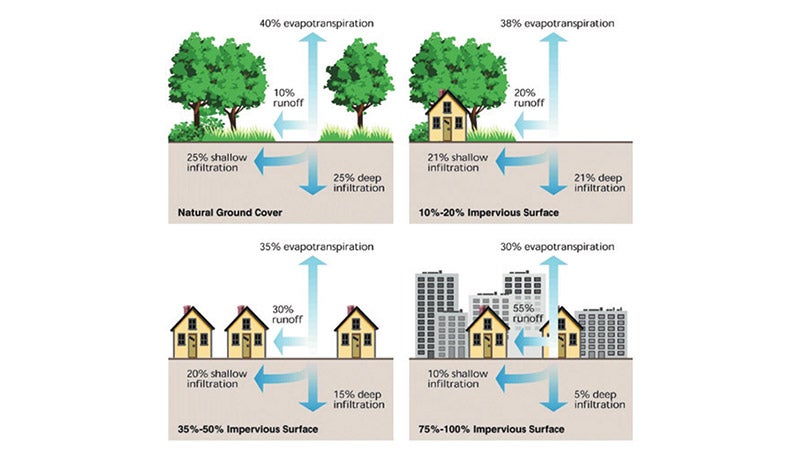Stormwater management
Published 6:00 am Wednesday, December 8, 2021
|
Getting your Trinity Audio player ready...
|
BY MARK C. CARROLL
Should stormwater management be a consideration for gardeners? If you are unsure, ask yourself, how important is water to your garden? There is little doubt you would agree that too much or too little water can be devastating to your gardening efforts. So, some understanding about how to manage or control stormwater in your specific garden can be beneficial for you and for the environment as a whole.
Virginia cooperative extension publications state: When rain falls on pervious surfaces, like soil, mulch and vegetative groundcovers, it soaks in through a process called infiltration. The water can be used by plants, or it can recharge underground water storage areas called aquifers.
The opposite of pervious surfaces is imprervious surfaces like driveways, space taken up by your house or other structures that block or shed water. These surfaces move or divert water to other places creating runoff, which typically ends up in the nearest location where water collects such as ponds, rivers, streams and our oceans, introducing fertilizers, pesticides and other pollutants to areas away from our home. Roads are almost all impervious, and much of the grime that builds up on them ends up in our waterways. So, what can we do?
There are a lot of steps we can take to help limit the impact on our environment. Here are a few:
- Limit impervious surfaces: simply growing plants, especially those with deep tap roots, helps compacted soil become more pervious, allowing water to infiltrate the soil.
- Water is a resource we can use in the garden. Keeping it on your property by using rain barrels, for example, keeps it from relocating pollutants elsewhere.
- Consider design measures like planting a rain garden in a low-lying area with some plants that can filter the water before sending it to other locations.
- Using less fertilizer and pesticides can really help. State law requires that you use these products in accordance with the label partially because it limits excess wasted products from collecting and contaminating our watershed.
Best Management Practices, or BMP’s, outline in detail ways to reduce the speed and volume of stormwater. You may find searching VCE publications that there is a six part series on “Stormwater Management for Homowners” with specific recommendations and considerations to help manage stormwater and runoff. When you think about the cost of water and how much we use in our gardens, the cost involved in storing water for outside use is really very reasonable. Not every environmental action needs to cost you money.





